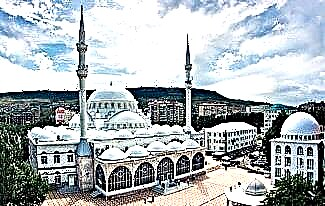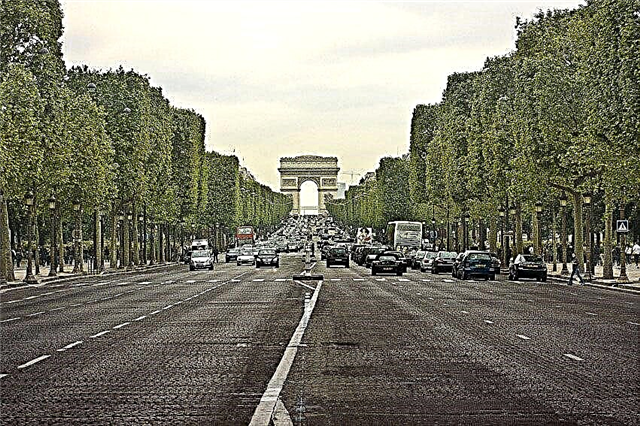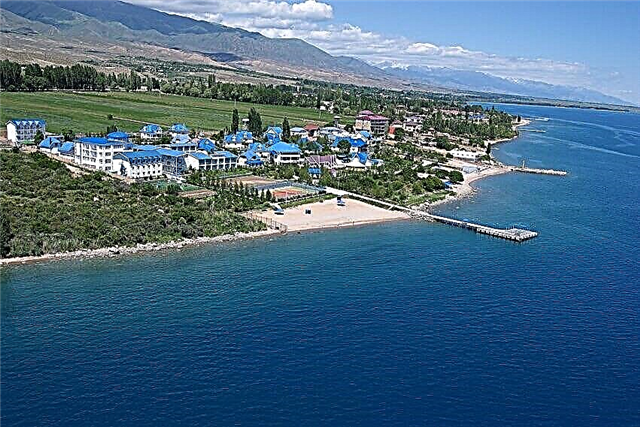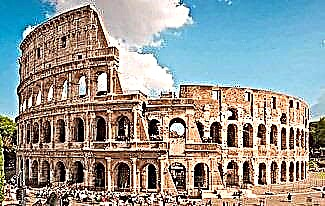The uprising of the Decembrists became an important milestone in the history of the Russian Empire. It is important both from the point of view of people who wanted changes, and from the point of view of representatives of the authorities, and the very top. Not to say that before that, Russian tsars and emperors were considered untouchable persons. After the death of Ivan the Terrible, they sinned of poisoning. With Peter III, it was not clear: either he died from hemorrhoids, or from drunkenness, or he was very much in the way of being alive. All Petersburg were conspiracies against Paul I until the poor man died from an apoplectic blow to the head with a snuffbox. Moreover, they did not hide much, they reminded those who succeeded Peter to Catherine and Paul Alexander: they say, remember who elevated you to the throne. Noble gallantry, an enlightened age - to remind the wife why the husband was killed, and to the son why the father was killed.

Paul I is about to be overtaken by a stroke
But those matters were quiet, almost family affairs. Nobody swayed the foundations. Has replaced one person on the throne of another, and okay. Those who grumbled were torn out their tongues or gagged with Siberia, and everything continued as before. The Decembrists, for all their heterogeneity, conceived everything in a completely different way. And the authorities understood this.
The square of soldiers on Senatskaya Street, and especially the shots at the generals and the Grand Duke Mikhail Yuryevich showed that now the monarch will not be limited. “The destruction of the former government” meant the destruction of its representatives. To heighten the suppression of the monarchy, together with Nicholas I, they were going to destroy his family (“They counted how many princes and princesses should be killed, but they did not bent their fingers” - Pestel), and no one took dignitaries and generals into account. But after the French Revolution, with its rivers of blood, a little more than a quarter of a century passed. The monarchy had to defend itself.
The summary of events takes up exactly one paragraph. Beginning in 1818, dissatisfaction with the authorities was ripening in officer circles. It would have matured for another 15 years, but the case turned up. Emperor Alexander I died, and his brother Constantine refused to accept the crown. The younger brother Nikolai had all the rights to the throne, and it was to him that the dignitaries swore allegiance on the morning of December 14, 1825. The conspirators did not know about this and took their soldiers to Senate Square. They explained to the servicemen - the enemies want to take the throne from Constantine, it is necessary to prevent this. After several skirmishes, the allegedly rebels, but in fact deceived soldiers, were shot from cannons. In this execution, none of the noble ones suffered - they fled earlier. Subsequently, five of them were hanged, several hundred were sent to Siberia. Nicholas I ruled for 30 years.

A selection of facts about the active phase of the uprising will help expand this description:
1. First of all, it is worth clarifying that not all the Decembrists, as it was commonly believed, were heroes of the Patriotic War of 1812 and the Foreign Campaign of 1813-1814. The arithmetic is simple: 579 people were involved in the investigation, 289 were found guilty. Of both lists, 115 people took part in the war - 1/5 of the total list and less than half of the list of convicts.
2. The two underlying causes of the uprising were the peasant reform outlined by Alexander I and European protectionism. No one really could understand what the reform would be, and this gave rise to a wide variety of rumors, to the extent that the sovereign was taking land from the landowners and organizing agriculture based on peasant farmers. On the other hand, grain exports from Russia fell 12 times by 1824. And the export of grain provided the main income for the landlords and the state.
3. The formal reason for the uprising was the confusion with the oaths. Historians still understand this confusion. In fact, in fact, it turns out that Nicholas and the higher dignitaries, not knowing about the secret abdication of Constantine, swore allegiance to him. Then, upon learning about the renunciation, they hesitated for some time, and this pause was enough for the ferment of minds to begin, and the Decembrists spread a rumor about usurpation. They take away, they say, power from good Constantine, and give it to bad Nikolai. Moreover, Nicholas immediately chained the Grand Duke Mikhail Pavlovich in chains, who allegedly did not agree with his accession.

4. The first blood was shed at about 10 am on December 14 in the Moscow regiment. On the issue of the “heroes of 1812”: Prince Shchepin-Rostovsky, who did not smell gunpowder (born in 1798), slashed with a sword at the head of Baron Peter Fredericks, who received the Order of St. Vladimir of the 4th degree for Borodino. Having got a taste, Shchepin-Rostovsky wounded General Vasily Shenshin, the commandant of Paris, who had been continuously fighting since the end of the 18th century. Colonel Khvoshchinsky also got it - he tried to help Fredericks, who was lying in the snow. After such names, the soldier who was hacked to death by Shchepin-Rostovsky in the guard at the regimental banner, as it were, does not count ... The soldiers, seeing that "their nobility" mutuz each other, were inspired - they were promised that they would serve instead of 25 years. Shchepin-Rostovsky during the investigation said that he defended the oath of allegiance to Constantine. He was sentenced to death, pardoned, lived in exile until 1856, and died in 1859.
5. On Senate Square, young people again dealt with the veteran of the Patriotic War without fear or reproach. When General Mikhail Miloradovich, whose awards it makes no sense to list - it was Miloradovich's troops in the vanguard that drove the French from Vyazma to Paris - tried to explain the situation with Konstantin in front of a line of soldiers (he was his very close friend), he was killed. Prince Yevgeny Obolensky (b. 1797) hit him with a bayonet, and one-year-old prince Pyotr Kakhovsky shot the general in the back.

The painting flatters Kakhovsky - he shot Miloradovich in the back
6. Nicholas I, despite the short term on the throne, when he learned about the uprising, was not at a loss. He went down to the guardhouse of the palace, in a short time he built a battalion of the Preobrazhensky regiment and personally led him to Senate Square. At this time, they were already shooting there. One company of the Preobrazhensky men immediately blocked the bridge to prevent the rebels from leaving. The rebels, on the other hand, did not have a unified leadership, and some leaders of the conspiracy were simply frightened.
7. Grand Duke Mikhail Pavlovich tried to reason with the rebels. What saved his life was that Wilhelm Küchelbecker was really, as he was called, Küchlei. He did not know how to shoot a pistol or load it. Mikhail Pavlovich stood a few meters from the trunk directed at him, and went home. Wilhelm Kuchelbecker's mother was breastfeeding the little Grand Duke Misha ...

Kuchelbecker
8. The absurd scene took place at about 13:00. Nikolai, accompanied by Benckendorff and several of his retinue, stood behind the company of the Preobrazhensky when he saw a crowd of soldiers, who looked like grenadiers, without officers. When asked who they were, the soldiers who did not recognize the new Emperor shouted that they were for Constantine. There were still so few government troops that Nikolai only showed the soldiers where they needed to go. After the suppression of the uprising, Nikolai learned that the crowd did not break into the palace in which his family was located, only because it was guarded by two companies of sappers.
9. Standing on the square ended with an unsuccessful attack by the cavalry guards of government troops. Against a dense square, the cavalry had little chances, and even the horses were on summer horseshoes. Having lost several men, the cavalry retreated. And then Nikolai was informed that the shells had been delivered ...
10. The first volley was fired over the heads of the soldiers. Only onlookers were injured who climbed the trees and stood between the columns of the Senate building. The line of soldiers collapsed, and the second volley fell already in the direction of a mixed crowd that ran randomly towards the Neva. The ice collapsed, dozens of people found themselves in the water. The uprising was over.
11. Already the first arrested men called so many names that there were not enough couriers to go after the arrested. Security officers had to be involved in the case. Nikolai had no idea about the scale of the conspiracy. On Senatskaya Street, for example, among the rebels they saw Prince Odoevsky, who had been on guard in the Winter Palace the day before. So the conspirators could well have scattered. The authorities were lucky that they preferred to “split up” as soon as possible.
12. The autocracy was so severe that there were not enough places of detention for several hundred arrested persons. The Peter and Paul Fortress was filled immediately. They sat in Narva, and in Reval, and in Shlisselburg, in the commandant's house and even in part of the premises of the Winter Palace. There, as well as in a real prison, there were also many rats.

There was not enough room in the Peter and Paul Fortress ...
13. The state had neither a law nor an article by which the Decembrists were to be tried. The military could have been shot for mutiny, but too many would have had to be shot, and many of the participants were civilians. Having rummaged in the laws, they found something from the end of the 16th century, but boiling resin was indicated there in the form of an execution. The British precedent prescribed to rip out the insides of the executed and burn what was torn out in front of them ...
14. After the Senate and the first interrogations of Nicholas I, it was difficult to surprise, but Colonel Pestel, delivered after the defeat of the uprising in the South, succeeded. It turned out that the revolutionary received allowance for his regiment in two, in today's language, military districts. Of course, this did not mean that the soldiers in Pestel's regiment ate twice as much as in the rest of the army. On the contrary, his soldiers were starving and wearing rags. Pestel appropriated the money, while not forgetting to share it with the right people. It took a whole riot to expose him.
15. As a result of the investigation, the judges, of whom there were more than 60, discussed the sentences at length. Opinions ranged from quartering all 120 persons prosecuted in St. Petersburg (the trials were held in other cities as well) to sending everyone away from the capitals. As a result, 36 people were sentenced to death. The rest received deprivation of the rights of the state, hard labor for various periods, exile to Siberia and demotion to soldiers. Nicholas I commuted all sentences, even five who were subsequently hanged - they had to be quartered. The hopes of some of the defendants to announce their accusations against the autocracy at the trial were ruined - the trial was held in absentia.









